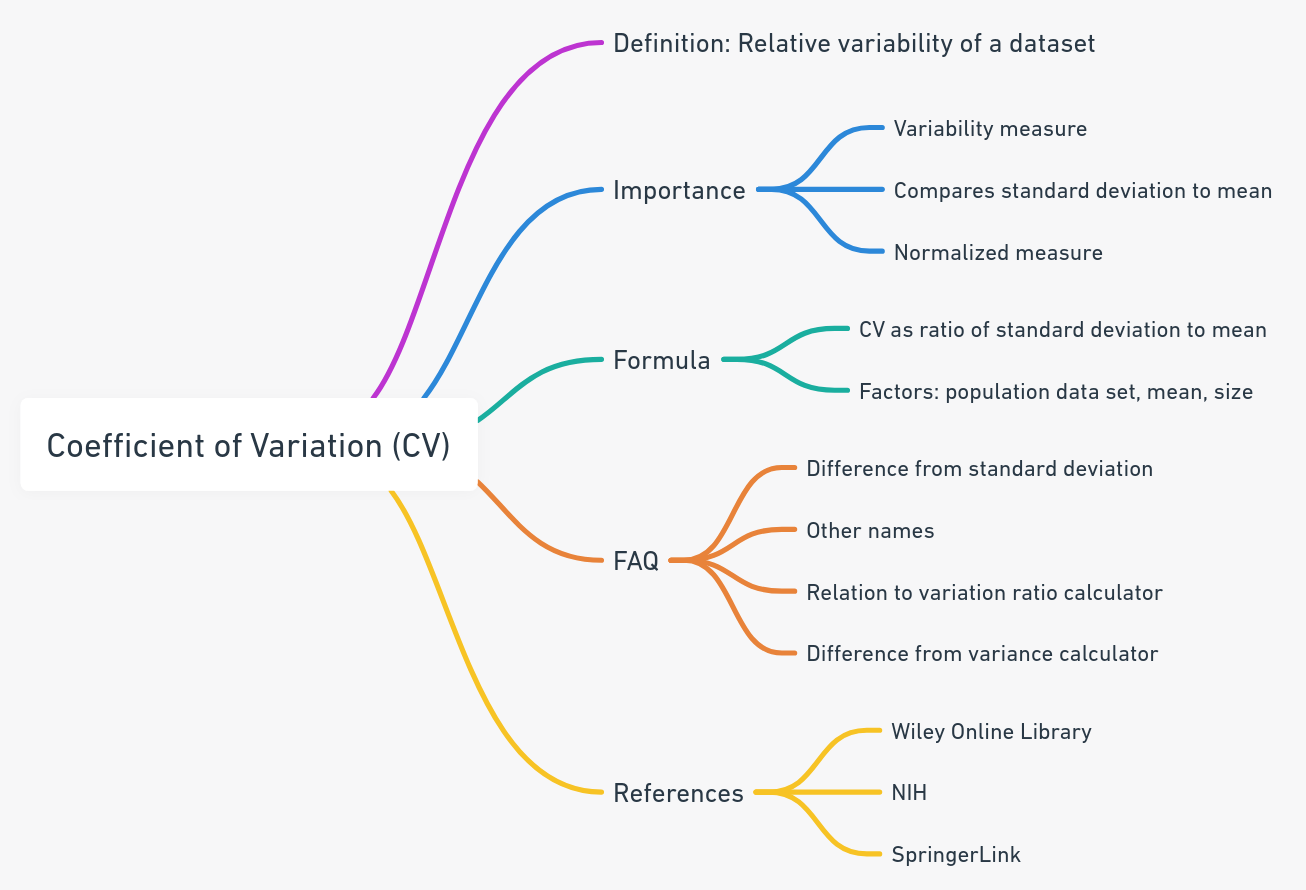Coefficient of Variation Calculator: Your Ultimate Tool for Data Dispersion
Embed Coefficient of Variation Calculator (High Precision) Widget
About Coefficient of Variation Calculator (High Precision)

The Coefficient of Variation Calculator (High Precision) is not just another statistical tool; it's your go-to solution for understanding the relative variability of a dataset. Whether you're a student, researcher, or data enthusiast, this calculator simplifies the process of determining the dispersion of data in relation to its mean.
What is the Coefficient of Variation (CV)?
The Coefficient of Variation, often abbreviated as CV, is a statistical measure that provides insights into the relative variability of a dataset. In simpler terms, it helps in understanding how spread out the values in a dataset are in relation to the mean of that dataset.
Why is CV Important?
Variability is a crucial aspect of any dataset. While measures like the mean or median give us a central value, they don't provide information about how spread out the data is. That's where the Coefficient of Variation comes into play. By comparing the standard deviation (a measure of data spread) to the mean, the CV gives a normalized measure of variability. This normalization is particularly useful when comparing datasets with different units or scales.
The Formula
The coefficient of variation is defined as the ratio of the standard deviation to the mean:
![]()

Where:
cv = coefficient of variation
σ = population standard deviation
x1, ..., xN = the population data set
μ = mean of the population data set
N = size of the population data set
FAQ
While both the Coefficient of Variation and standard deviation measure data dispersion, the CV is a relative measure, indicating the size of the standard deviation in relation to its mean. It's particularly useful when comparing the variability of datasets with different units or scales.
Both tools deal with data dispersion, but they approach the concept differently. The variation ratio calculator focuses on categorical data, while the Coefficient of Variation is more suited for ratio or interval data.
Reference
- Coefficient of Variation - Wiley Online Library
- Use of Coefficient of Variation in Assessing Variability of Quantitative Assays - NIH
- Coefficient of Variation - SpringerLink
Reference this content, page, or tool as:
"Coefficient of Variation Calculator (High Precision)" at https://miniwebtool.com/coefficient-of-variation-calculator/ from miniwebtool, https://miniwebtool.com/
by miniwebtool team. Updated: Oct 03, 2023
You can also try our new AI Math Solver to solve your math problems through natural language question and answer.
Related Miniwebtools:
Binomial Coefficient CalculatorStatistics And Data Analysis:
- Arithmetic Mean Calculator
- Average Calculator (High Precision) Featured
- Average Deviation Calculator
- Coefficient of Variation Calculator (High Precision)
- Compound Growth Calculator Featured
- Confidence Interval Calculator
- Geometric Mean Calculator
- Harmonic Mean Calculator
- Interquartile Range Calculator
- Mean Absolute Deviation (MAD) Calculator
- Mean Calculator (High Precision)
- Mean Median Mode Calculator
- Median Absolute Deviation Calculator
- Median Calculator Featured
- Midrange Calculator Featured
- Mode Calculator
- Outlier Calculator Featured
- Population Standard Deviation Calculator (High Precision)
- Quartile Calculator Featured
- Quartile Deviation Calculator
- Range Calculator Featured
- Relative Standard Deviation Calculator (High Precision) Featured
- Root Mean Square Calculator
- Sample Mean Calculator Featured
- Sample Size Calculator
- Sample Standard Deviation Calculator
- Standard Deviation Calculator (High Precision)
- Standard Error Calculator (High Precision) Featured
- Variance Calculator (High Precision)